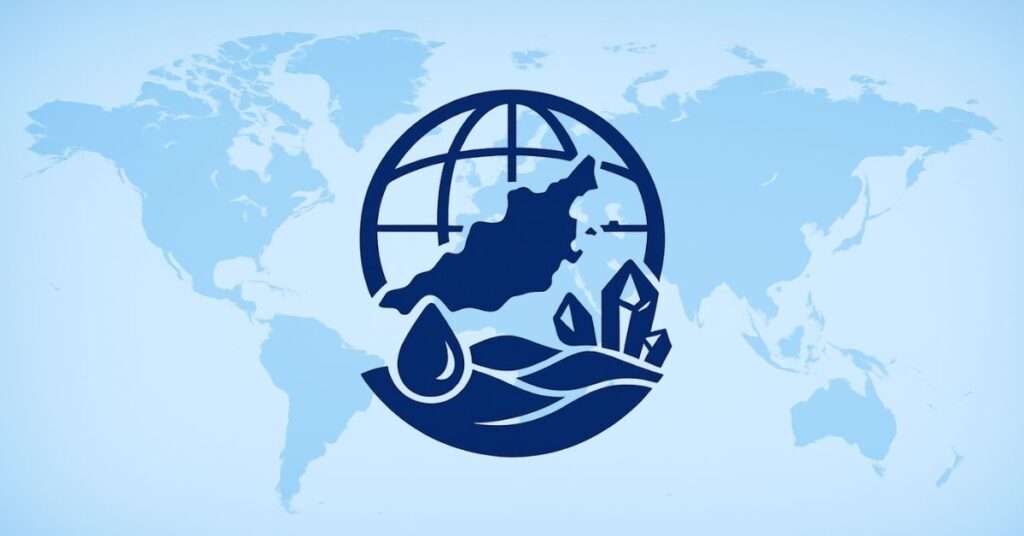The richest countries by natural resources hold vast reserves of the world’s most valuable commodities—oil, natural gas, coal, metals, timber, and minerals. These nations possess immense underground wealth that plays a crucial role in shaping global energy markets, geopolitics, and economic strategies. Understanding which countries lead in natural resource wealth gives us insight into the foundations of global power and trade.
Key Insights & Methodology
Natural resources refer to raw materials derived from the Earth that hold significant economic value. These include fossil fuels (like oil, coal, and natural gas), precious metals (such as gold, silver, and copper), industrial minerals, timber, and more. The total estimated value of a country’s natural resources is calculated in US dollars, considering current market prices, proven reserves, and extraction feasibility.
Top 10 Richest Countries in the World by Natural Resources
At the top of the list is Russia, with an estimated $75 trillion worth of natural resources. Its enormous landmass is rich in oil, natural gas, coal, timber, and valuable metals. Russia is a major supplier of energy to Europe and Asia, and its mineral wealth remains unmatched.
The United States ranks second with $45 trillion in natural resource value. Its diverse resource base includes oil and gas (particularly from shale), coal, gold, copper, timber, and rare earth elements essential for modern electronics. Despite heavy consumption, the U.S. remains one of the most resource-abundant nations.
In third place, Saudi Arabia commands $34 trillion in resources, primarily due to its vast oil reserves. As a founding member of OPEC, Saudi Arabia wields significant influence over global oil prices. The country has recently been diversifying its economy, but oil continues to be its dominant wealth source.
Canada follows closely with $33 trillion, thanks to its expansive forests, oil sands, and mineral reserves, making it a key player in global commodities and energy exports. Iran, at fifth, holds some of the largest proven oil and gas reserves globally, accounting for $27 trillion in estimated resource wealth.
China ranks sixth with $23 trillion, driven by its vast coal reserves, rare earth metals, and industrial minerals essential to its manufacturing powerhouse. Brazil has $22 trillion worth of natural wealth, including iron ore, gold, timber, and offshore oil reserves, fueling both its economy and global exports.
Australia, known for its mining industry, holds $20 trillion in resources, particularly iron ore, coal, and gold, making it one of the richest countries per capita in mineral wealth. Iraq, with $16 trillion, relies heavily on oil exports, which form the backbone of its economy. Venezuela rounds out the top 10 with $14 trillion, despite political and economic instability; the country boasts some of the largest oil reserves in the world.
| # | Country | Estimated Value (USD) | Key Natural Resources |
|---|---|---|---|
| 1 | Russia | $75 trillion | Natural gas, oil, coal, timber, gold, rare earth metals |
| 2 | United States | $45 trillion | Coal, timber, natural gas, oil, gold, copper |
| 3 | Saudi Arabia | $34 trillion | Oil, natural gas, gold |
| 4 | Canada | $33 trillion | Timber, oil sands, natural gas, uranium, gold |
| 5 | Iran | $27 trillion | Oil, natural gas, coal, copper |
| 6 | China | $23 trillion | Coal, rare earth elements, gold, timber |
| 7 | Brazil | $22 trillion | Iron ore, gold, oil, uranium, timber |
| 8 | Australia | $20 trillion | Coal, iron ore, gold, uranium, natural gas |
| 9 | Iraq | $16 trillion | Oil, natural gas, phosphates |
| 10 | Venezuela | $14 trillion | Oil, natural gas, gold |
| 11 | Kazakhstan | $13 trillion | Oil, natural gas, uranium, coal |
| 12 | South Africa | $11 trillion | Gold, platinum, coal, diamonds |
| 13 | Indonesia | $10 trillion | Coal, natural gas, gold, copper |
| 14 | Nigeria | $9 trillion | Oil, natural gas, tin, limestone |
| 15 | Libya | $8 trillion | Oil, natural gas |
| 16 | Mexico | $7 trillion | Silver, oil, copper, gold |
| 17 | United Arab Emirates | $6.5 trillion | Oil, natural gas |
| 18 | Algeria | $6 trillion | Natural gas, oil, iron ore |
| 19 | Norway | $5.5 trillion | Oil, natural gas, timber |
| 20 | India | $5 trillion | Coal, iron ore, bauxite, natural gas |
Energy-Rich Nations and Their Global Influence
Countries with significant natural resources often hold substantial geopolitical power, especially when those resources are in high global demand. For instance, oil-rich nations like Saudi Arabia, Russia, and Iran play pivotal roles in energy markets and global diplomacy. Their control over production and pricing affects everything from inflation rates to international conflict zones.
As the world transitions toward sustainable energy, the value and control of natural resources are evolving. Yet in 2025, fossil fuels and critical minerals continue to drive the economies and power structures of the richest nations. These resource giants are not only wealthy underground—they shape the destiny of global trade, energy security, and future technologies.
Related Articles
- Richest Countries by GDP
- Richest Countries by GDP Per Capita
- Richest Countries by Gold Reserves
- Richest Countries by Foreign Exchange Reserves
- Richest Countries by Average Wealth per Adult
- Fastest Growing Rich Countries in the World
